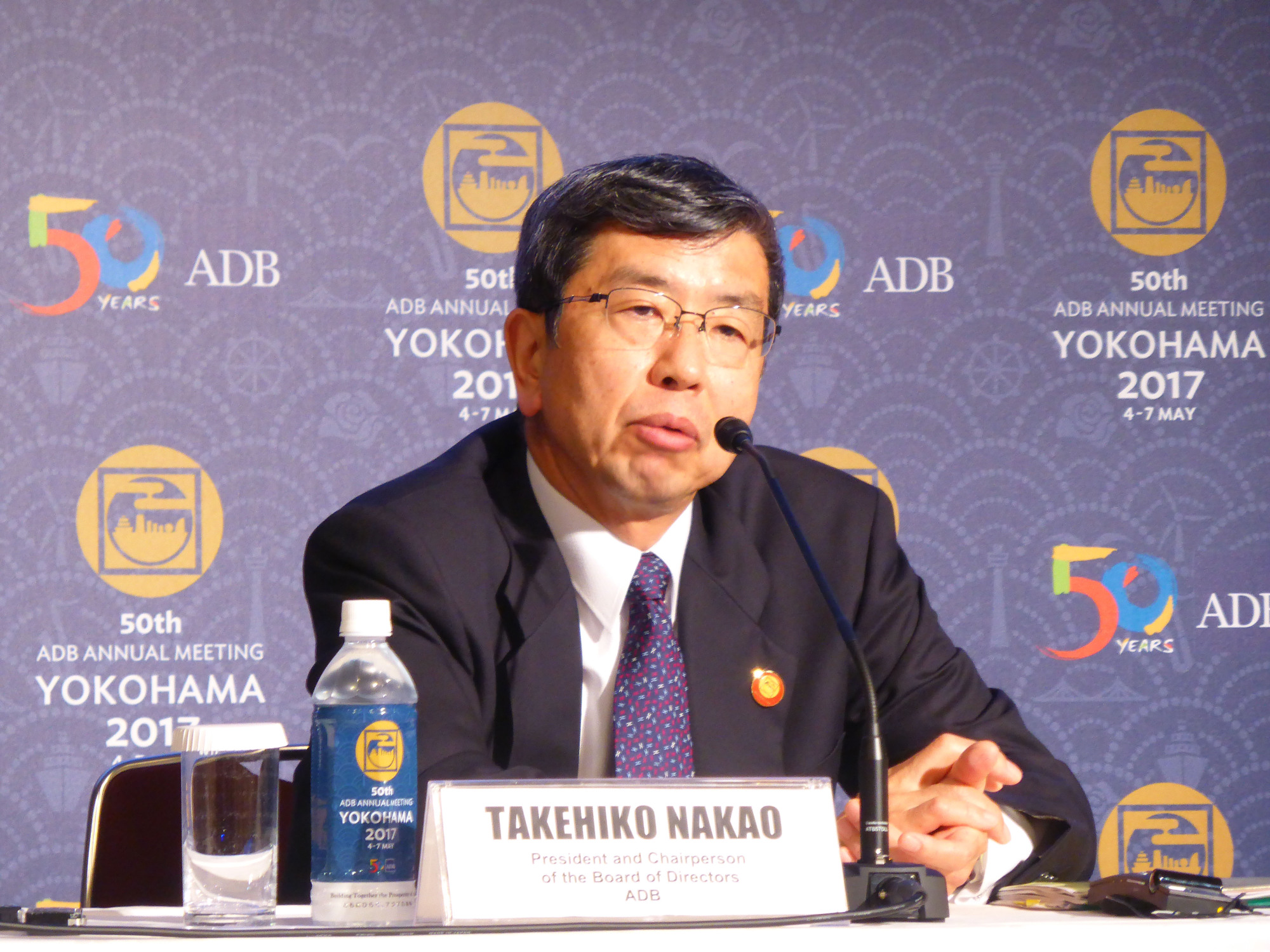In response to rapidly aging populations in Asia and the Pacific, the government and the Asian Development Bank have agreed to cooperate on strengthening efforts to boost universal health coverage in the regions based on Japan's health system.
The Manila-based financial institution and the Japan International Cooperation Agency (JICA), a governmental entity that carries out Japan's official development assistance, signed a memorandum of understanding to cooperate in areas such as health policy formulation and medical workforce development. The two institutions will also cofinance the building of basic health- and welfare-related infrastructure.
The signing took place at the international bank's annual meeting, which kicked off Thursday at the Pacifico Yokohama convention center in Yokohama.

















With your current subscription plan you can comment on stories. However, before writing your first comment, please create a display name in the Profile section of your subscriber account page.